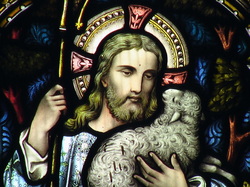Beliefs
of the Victorian Era are often associated with religion.
They can be broken down into four main areas.
of the Victorian Era are often associated with religion.
They can be broken down into four main areas.
political:

- Prior to the Reform Acts, it was believed that only the privileged and rich vote and have say in parliament.
- Through the 19th century, women were believed to have no right to vote or own land. This changed with the progression of women's suffrage.
- The term "liberal" came up to describe political parties that were moving to change the standards.
- As a woman at the time of the women's suffrage movement, would you be for the changes or against them?
- How would you feel if you were a commoner and had no say in what parliament did?
- As the liberal parties were formed, do you think you would be for or against them?
educational:

- Only the wealthy were educated
- Most working class had no interest in education
- Religious conflict also delayed the establishment of a national system
of education (1843 Factory Bill) .
- There was violent opposition to the bill on the part of nonconformists and Catholics alike because, according to the Bill, headmasters had to be of the Church of England
Discussion Questions:
- Could you imagine your life with no education?
- Would you have supported the Factory Bill?
religious:

- The Church of England had the 39 Articles of Religion, which summarized the beliefs of the church.
- The Evangelical movement challenged the Church of England.
- Would you have followed the Church of England or joined a new movement?
- How would it feel to have no religious freedom?
social:

- Could be broken down into three main divisions: Working class performed physical labor, middle class performed clean labor, and upper class did not have to work.
- Working class did not follow rules of courtship nor did they participate in social entertainment.
- Middle class consisted of bankers, shopkeepers, and engineers. Only men provided income.
- Upper class included nobility and enjoyed social activities, such as the arts
Discussion Questions:
- What social class do you fall in? (You don't have to answer outloud) Most of us would be in working class
- How would your social life be different if you had to abide by the rules of the social classes?
